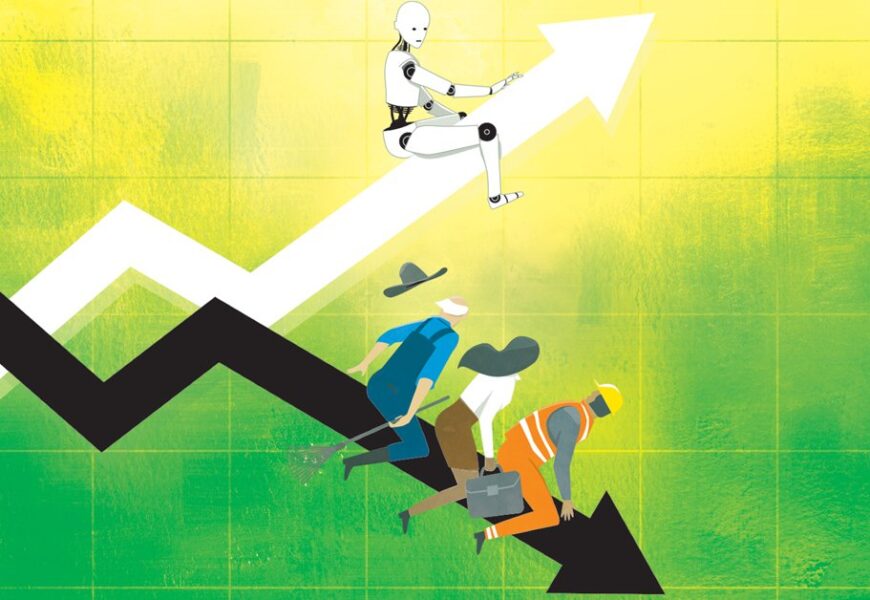Technologists often anticipate that the economic ramifications of their innovations will be groundbreaking, particularly in the realm of artificial intelligence. Elon Musk, for instance, forecasted that ongoing AI advancements would make human labor obsolete. Sam Altman, the CEO of OpenAI, suggested that AI will further shift economic power from labor to capital, resulting in significant wealth creation. Jensen Huang, the CEO of Nvidia, likened the progress of AI to a modern industrial revolution.
On the contrary, economists, who also wield significant influence over public affairs, do not share the same level of optimism as technologists regarding the economic effects of AI. Many economists argue that even if AI systems reach the level of sophistication envisioned by technologists, the actual economic impact might be less dramatic. Tyler Cowen, an economics professor, believes that AI will only marginally increase the annual US growth rate. Nobel laureate Paul Krugman posits that significant economic changes due to AI may take longer to materialize than anticipated. David Autor, an economics professor at MIT, asserts that job availability in the industrialized world will remain abundant.
Anton Korinek, an economics professor at the University of Virginia, challenges the prevailing views within his profession. Collaborating with his Ph.D. student Donghyun Suh, Korinek explores a scenario where AI surpasses human capabilities in all tasks by the end of the decade. In their research, they suggest that if machines achieve full automation of tasks bounded by human complexity limits, it could lead to a drastic decline in wages, exacerbating inequality and potentially leaving many without resources to sustain themselves.
Korinek acknowledges the historical skepticism towards the idea of a fixed number of jobs (the lump of labor fallacy) and the impact of automation on employment. However, he points out that the rapid advancement of AI technologies presents a unique challenge that could reshape the economy and labor dynamics in unprecedented ways.
While some economists remain skeptical about the near-term development of artificial general intelligence (AGI), Korinek emphasizes the need for proactive preparation for a future where AI systems could outperform humans across all tasks. He underscores the importance of policymakers recognizing the potential disruptions AI may bring and taking preemptive measures to address the associated economic and social challenges.
In conclusion, as the discourse around AI’s potential grows, Korinek advocates for a cautious yet proactive approach to understanding and mitigating the far-reaching consequences of advanced artificial intelligence on society and the economy.










